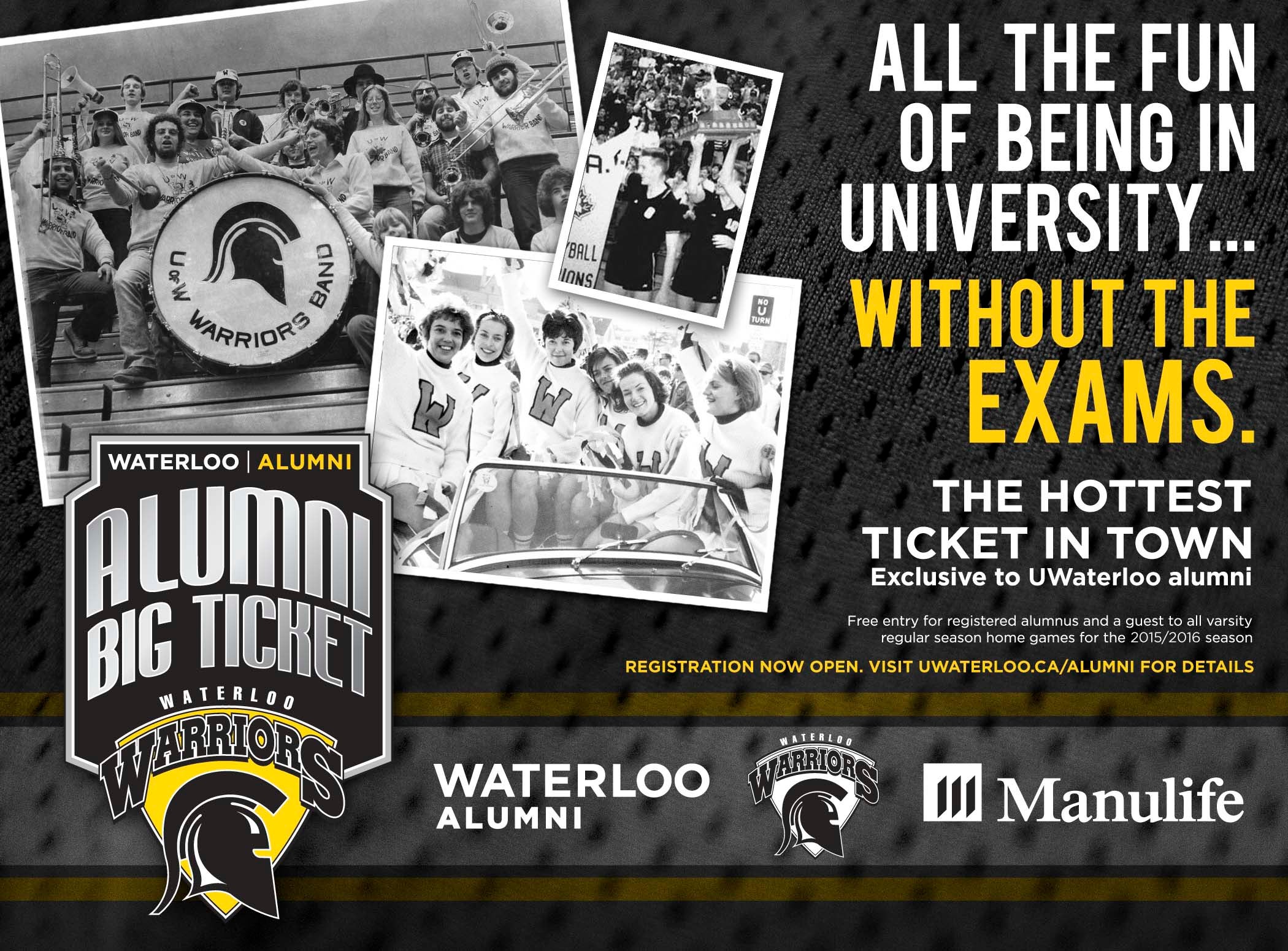
Written by Trevor Pollitt (BMath ’77)
I got the Alumni Big Ticket last year intending to see a few games, but got hooked on the contrast between men’s and women’s volleyball. I watched more than 30 games, mostly in doubleheaders. This year’s Big Ticket offers the right price (you can't beat free with Manulife funding it again), at great venues in both the PAC and Columbia Icefield. But it is only effective when enough of us add to the sound of friendly surroundings. Spectator sports need spectators. Your Warriors deserve spectators.
Having not watched volleyball in 20 years, I had no idea what was going on with the odd coloured shirt on each team. A neighbouring high-school-aged daughter explained the libero and its substituting rules, which would have taken me forever to figure out just from watching. It was the most interesting thing I learned all fall. Volleyball is mainly a reaction game, so the men’s power results in bump, set, spike, bump, set, spike, ... with infrequent mistakes or ruses. Women show a more nuanced game, in which finesse is as valuable as power. Tipping is much more common, and at the slightly slower speed of play, is more precise than men’s. This use of options makes play less predictable, and fully engaging. Neither men’s nor women’s is better: they’re both enjoyable, but quite different. And you get both of them in a single sitting.
Some Big Ticket sports have more fans, some less. My nephew used his Big Ticket so 4 of us could catch a Warriors hockey game. That is seriously good hockey, which the large crowd appreciated. I also saw basketball games often entertain small crowds. We can all accept that it’s easy to cheer for a winning team, to enjoy great virtuoso displays of skill. Yet ours is an institution of learning, and one of life’s vital lessons is how to approach a problem that exceeds one’s immediate ability to solve. Arguably, the athletes who deserve the most admiration are the ones who show up and do the work, regardless of the odds. Varsity sports are about more than the love of a game. They are a facet of a well rounded education that distinguishes both the student and the school.
Varsity athletes dedicate hours every week to their sport, and must learn to balance their lives while exploring the roles of passion and communal purpose. Fan support is undeniably part of the athletes’ experience, and may affect their participation. So please, affect it. Recognize also that the university is a community resource, and using the Big Ticket reveals a measurable, visible connection to the external community. Without fan support, sports may continue to exist due to an individual’s passion, but fan support will ensure decision-makers’ interest.
Current graduates are entering a difficult world that continues to move from concrete products to virtual ones, with shortening lifespans for both techniques and knowledge. Today’s ideal employee is not only a subject matter expert, but meshes well with others, communicates clearly to experts in other fields, and covers gaps in other people’s knowledge and skills. So what does that have to do with varsity sports? Sports utilize different skills than academics do. Studying is primarily an individual skill that develops strong self-dependence, while team sports require understanding how other players’ strengths can contribute to team interdependence. Teams require assessing what other people will do, then signalling one’s own intentions. In short, athletes focus outward rather than inward, as the real world increasingly requires.
Your Big Ticket might not change the world, but enough users might remind the athletes that more than just their friends and family care about what they do, and what they will do.